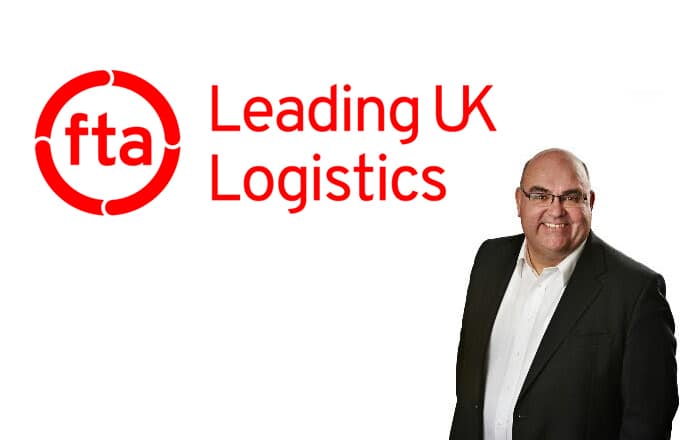By Martin Palmer, Strategic Supply Chain Consultant, FTA.
As lockdown restrictions begin to ease, companies within the supply chain are now focusing their efforts on re-starting and scaling-up their operations to respond to growing demand. But with new safe working regulations now in place – in addition to changes in consumer and business behaviour – it is clear operations will not return to pre-Covid-19 normality immediately, if ever; permanent change lies ahead.
FTA’s Supply Chain Consultancy practice has been supporting and advising members throughout the Covid-19 outbreak and has identified eight key areas of the supply chain we expect may never be the same again: stockholding, stockpiling, critical local manufacturing & pricing; on-shoring and near-shoring; ecommerce, home delivery; automation and new technology; and the urban environment.
STOCKHOLDING
The Covid-19 pandemic has been a stark reminder of the vulnerability of long-distance supply chains and how much they are impacted when the usual drumbeat of delivery stops. We believe organisations will now start to review the amount of inventory they hold more closely and rethink their definitions of sensible stock volumes.
STOCKPILING
As supply chains became more efficient over the years, it became good practice to minimise warehouse inventory wherever possible as it is a key cost element. However, the Covid-19 outbreak has shown that there are some vital products that do need to be stocked in larger quantities, as we have seen with during these last months with toilet roll, basic food stuffs like pasta and PPE for the NHS. When reviewing stocks, organisations should evaluate which product lines are critical in terms of profit margin and revenues and which are likely to need more priority warehousing space. This change of focus is likely to impact demand for UK warehousing for a number of years to come.
CRITICAL LOCAL MANUFACTURING & PRICING
I expect there will be a nationwide government review to determine the items that are just too important to be sourced only from a single supplier outside the UK or within lorry driving distance. It is likely that a critical ‘safety’ level will be required to manufacture items in the UK; there will also be a move to multi-country, multi-supplier sourcing as we aim to reduce the risk of out of stock situations for key products. At a national and regional government level, we believe that the cost of these goods will no longer be the single primary driver for these decisions.
ON-SHORING AND NEAR-SHORING
Long distance, complex supply chains are vulnerable. In addition to building larger stockholdings and re-evaluating the items that need much larger safety stocks, many businesses will seek to shorten the supply chain by finding suppliers much closer to home.
ECOMMERCE
More than ever, businesses have been turning to online supply, with both manufacturers and wholesalers developing new B2C supply chains. While the move to online shopping was a real force before the pandemic, as many organisations have now been driven online by necessity, it is logical to conclude they will continue this approach with services now up and running and efficiencies identified. In addition, retail organisations that had previously avoided or under-estimated the power of having an online offer will be re-considering their position as the high street is unlikely to recover its former, often tenuous position.
HOME DELIVERY
Consumers and businesses who did not use online shopping previously are now used to deliveries arriving at their door; a large proportion of these will find they enjoy the convenience and wish to continue. Whether for personal or business use, online shopping is the world’s biggest buying group. Social distancing measures have meant that photographs and geotagging are now sufficient for accepting packages; ‘signed for’ deliveries are no longer needed. This will be a great help to delivery companies as they try to meet increasing demand. Most consumers have also realised that certainty of supply is more important than ‘next day’ or “same day” delivery. We have all stockpiled essential items in our own way and have become quickly used to a reliable three-to-four day delivery service. This should help improve the productivity and profitability of home delivery businesses; after, all they are now recognised as essential businesses.
AUTOMATION AND NEW TECHNOLOGY
There has been a growing trend towards the use of automation within supply chains; it is almost inevitable that the use of these systems will accelerate, driven mainly by the experience of recent staff shortages. We will also see the use of new technologies that were recently only considered in their early concept stages gain more credibility, for example, autonomous vehicles and drones. Use of these developments will enable the economy to take another step towards becoming less reliant on human interaction.
THE URBAN ENVIRONMENT
The reclamation of the streets from vehicles by pedestrians and cyclists during lockdown will only accelerate the move towards the protection of the urban environment, with stricter controls expected and an increased focus on the quality of not just our air, but also of the way our urban environments are used. Consolidation centres outside our busy cities will grow and the use of alternative delivery methods, such as robots, drones, bikes, electric vehicles and even on-foot deliveries, is also likely to increase. Access restrictions and higher charges will drive these changes, as air quality improvement measures become more popular with local voters. This will become one of the next great challenges for the logistics industry.
To assist logistics businesses of all sizes to return to work safely and effectively after the Covid-19 crisis, FTA’s Supply Chain Consultancy has launched a new, independent and strategic business review process, which aims to identify areas which fail to comply with new health and safety legislation and spot bottlenecks and weaknesses in supply chains.
To find out more about the FTA’s new Back to Work Strategic reviews, or for a free confidential discussion with the team, please visit https://fta.co.uk/coronavirus/covid-19-strategic-supply-chain-review
FTA is one of the UK’s leading business groups, representing the logistics industry, which is vital to keeping the UK trading, and more than seven million people directly employed in the making, selling and moving of goods. With Covid-19, Brexit, new technology and other disruptive forces driving change in the way goods move across borders and through the supply chain, logistics has never been more important to UK plc. FTA supports, shapes and stands up for safe and efficient logistics, and is the only business group which represents the whole industry, with members from the road, rail, sea and air industries, as well as the buyers of freight services such as retailers and manufacturers whose businesses depend on the efficient movement of goods.
For more information about the organisation and its work, including its ground-breaking research into the impacts of COVID-19 on the whole supply chain, please visit www.fta.co.uk.
This content brought to you by
About Logistics UK
Who we are?
FTA are one of the biggest business groups in the UK, supporting, shaping and standing up for efficient logistics. We are the only organisation in the UK that represents all of logistics, with members from the road, rail, sea and air industries, as well as the buyers of freight services such as retailers and manufacturers whose businesses depend on the efficient movement of goods.
Why do we exist?
An effective supply chain is vital to Keep Britain Trading, directly impacting over 7 million people employed in making, selling and moving the goods that affect everyone everywhere. With Brexit, technology and other disruptive forces driving changes in the way goods move across borders and through the supply chain, logistics has never been more important to UK PLC.
What do we do?
As champions and challengers, FTA speaks to Government with one voice on behalf of the whole sector, greatly increasing the impact of our messages and achieving amazing results for Members.
Media Contact:
Rona Hunnisett Link
Featured Media
Future Logistics Conference in 6 minutes! Link













